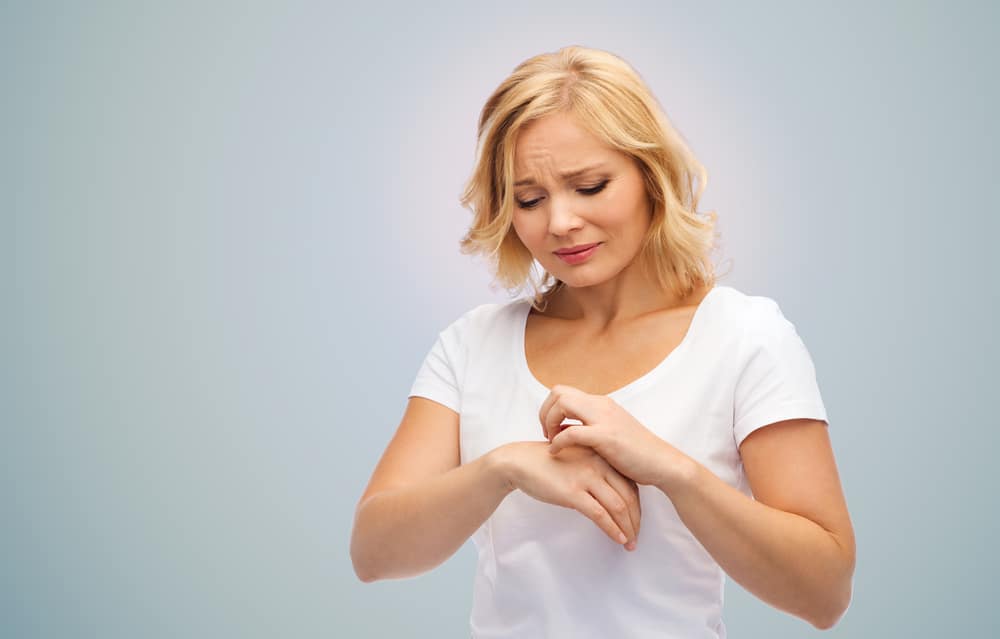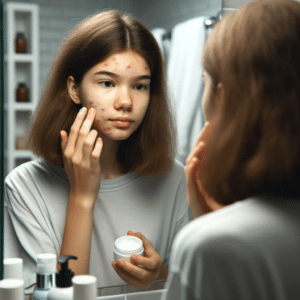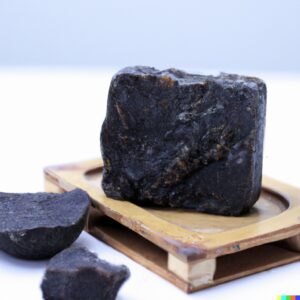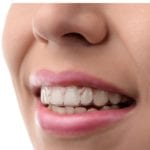Eczema, which causes itching, redness, dryness, and irritation, is a fairly prevalent skin condition that affects millions of people worldwide. Additionally, the disorder is referred to as atopic dermatitis. It usually begins around infancy or early childhood, but it can last until adulthood if left untreated.
Eczema affects 31.6 million people in the United States, accounting for more than 10% of the population.
What Causes Eczema
The exact cause of eczema is still a mystery to scientists. Researchers are still trying to figure out the exact cause of eczema. However, many health professionals feel that it is caused by a combination of hereditary and environmental factors that interplay.
Researchers believe that it is caused by an overactive immune system, which is another contributing factor. Eczema is thought to be caused by a mix of factors such as immune system activation, genetics, environmental triggers, and stress, among others.
Children who have eczema or similar atopic conditions in their parents are more likely to get the condition themselves. Causes of eczema could be one or a mix of the following:
- Genetics
- Problems in the way your immune system works
- Your mother’s age at the time of your birth
- Environment
- Activities that make your skin more sensitive
- Deficiencies in the skin barrier
- Disorders involving the endocrine
- Stress
- Hormones
Common Signs/Symptoms Of Eczema
Eczema signs and symptoms can be radically different from person to person and appear anywhere on the body. Eczema can affect persons of any age.
- Cracked, dry skin
- Rash on skin that varies in color
- Swollen skin that varies in color
- Small/raised bumps on brown/black skin
- Crusting/Oozing of skin
- Darkening of skin around eyes
- Scratching of raw, sensitive skin
How To Treat Eczema
As previously stated, there is no cure for eczema at the moment. And eczema can be a chronic condition.
Treating eczema can be challenging if the cause is uncontrollable, such as genetics. You may need to experiment with various treatments for months or even years to get it under control. Additionally, even after successful treatment, signs and symptoms may recur or flare.
However, treatment for the condition generally aims to heal the affected skin and prevent recurrences of symptoms. Fortunately, you may be able to exert some control over your environment and stress level.
The appropriate treatment will be determined by the type and severity of your eczema. Doctors will recommend a treatment plan based on an individual’s age, symptoms, and current health status.
You may find it beneficial to combine multiple treatments. Eczema treatment options include the following:
Medications
Corticosteroid creams and ointments are anti-inflammatory medications that should alleviate the primary symptoms of eczema, including inflammation and itching. After moisturizing, apply it as directed.
Other creams, such as tacrolimus (Protopic) and pimecrolimus (Elidel), affect your immune system. These medications suppress the immune system’s activity. It reduces inflammation and aids in the prevention of flares.
Phototherapy
UV light or sun lamps are used in light therapy or phototherapy to help prevent immune system responses that trigger eczema. This method is effective for treating mild dermatitis.
That is accomplished through exposure to UVA or UVB waves. It is a series of treatments that can help alleviate or eliminate eczema.
Alternative Treatments
Alternative therapies may help alleviate eczema symptoms. Always consult your physician before using a herbal supplement or beginning an exercise routine due to the possibility of side effects.
Biofeedback, relaxation, and behavior modification; these strategies may be beneficial for individuals who scratch frequently.
Additional popular alternative treatments include the following:
- green, black, or oolong tea
- coconut, sunflower, borage, and primrose oils
- acupuncture
Home Remedies
Applying a cool, moist washcloth to inflamed skin can help alleviate the associated pain and itching. To alleviate itching, press a clean, wet towel against the skin.
Additionally, you can try bathing in warm water for no more than 10 or 15 minutes to avoid developing dry skin. Towel yourself carefully (patting it dry rather than rubbing it dry), and then moisturize your entire body with a moisturizer.
Finally, you can take an oatmeal bath. Colloidal oatmeal, scientific name Avena sativa, is made from oats that have been pulverized and boiled to extract their skin-healing properties.
Colloidal oatmeal can be found in various bath soaks and body creams. It may help alleviate the irritation associated with eczema.








